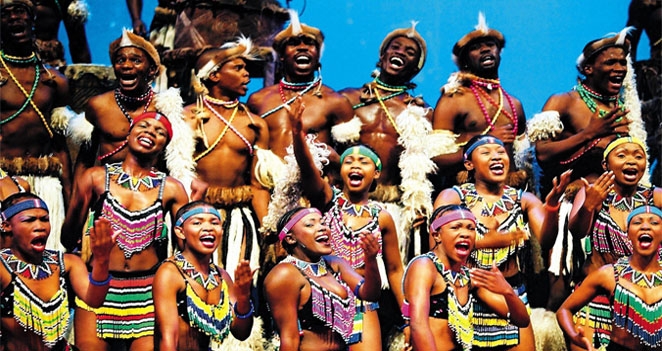
The Zulu people, proudly referring to themselves as the people of the heavens (amaZulu), are South Africa’s largest ethnic group. Over 10 million residents predominantly live in the province of KwaZulu-Natal. Their language, isiZulu, is one of South Africa’s most widely spoken, and their rich cultural history, military prowess, and vibrant traditions have left an indelible mark on the nation.
Origins: From Clan to Kingdom
The Zulu were originally a tiny clan in what is now Northern KwaZulu-Natal, founded in the late 16th century by Zulu kaMalandela. They trace their roots to the larger Nguni-speaking peoples who migrated down Africa’s eastern coast over millennia as part of the Bantu migrations. By the early 19th century, under the visionary leadership of Shaka Zulu, the Zulu people transformed from a minor clan into a formidable kingdom.
Shaka, one of history’s most brilliant military strategists, inherited leadership of the Zulu after the death of his father, Senzangakhona, when the clan had only 1,500 people. Through innovative tactics, Shaka expanded the army (impi) to over 50,000 warriors and introduced the assegai—a short stabbing spear—that revolutionized warfare. He also discarded sandals to improve his warriors’ agility in battle, further proving his military genius.
Read: The Unique Language of the Khoisan of South Africa
The Rise of a Military Empire
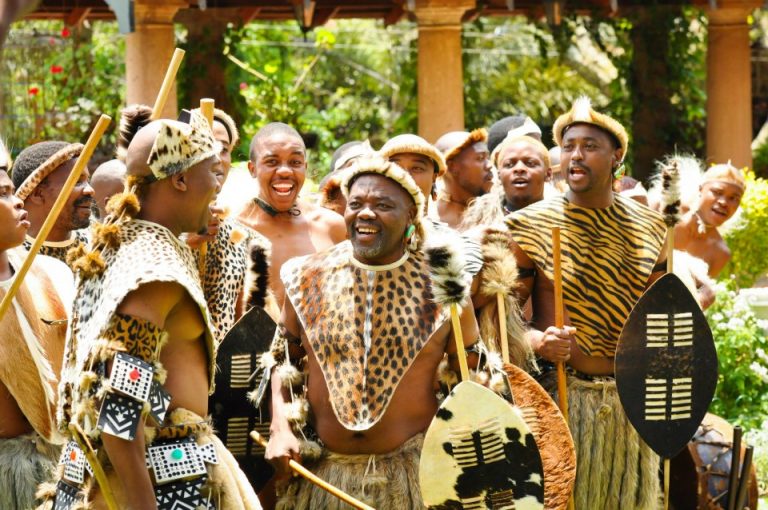
One thing Shaka Zulu’s reign is remembered for is its military achievements and the establishment of the Zulu kingdom’s dominance. The Zulu warriors, organized into amabutho (regiments), were feared throughout Southern Africa. Their success was most famously demonstrated during the Anglo-Zulu War of 1879, they triumphed over 1,500 British soldiers in the Battle of Isandlwana, a defining moment of African resistance against colonial powers.
Although the Zulu were eventually defeated by the British at the Battle of Ulundi later that year, their legacy as fierce warriors and military tacticians endures.
Zulu Traditions and Ceremonies: A Window into the Past
The Zulu people are known for their elaborate cultural practices, including vibrant ceremonies and dances celebrating various life stages. One of the most famous is the annual Umhlanga, or Reed Dance, where thousands of young Zulu women gather at the royal capital near Nongoma to perform before the king. This tradition promotes pride in womanhood and unity, with women dressed in intricate beadwork and traditional attire.
Beadwork holds a special place in Zulu culture, functioning as an adornment and a language of its own. The colors and patterns used in beads can signify a person’s marital status, age, or wealth. For example, unmarried women wear more revealing clothing, such as beaded skirts made from grass or cotton, while married women cover themselves as a sign of respect to their in-laws.
On the other hand, their men wear traditional garments like the umqhele (a warrior’s headband), ibheshu (a leather loincloth), and imbadada (sandals). These items are worn during ceremonies, dances, and significant cultural events, embodying the heritage of their warrior ancestors.
Culinary Traditions: The Flavors of Zulu Life
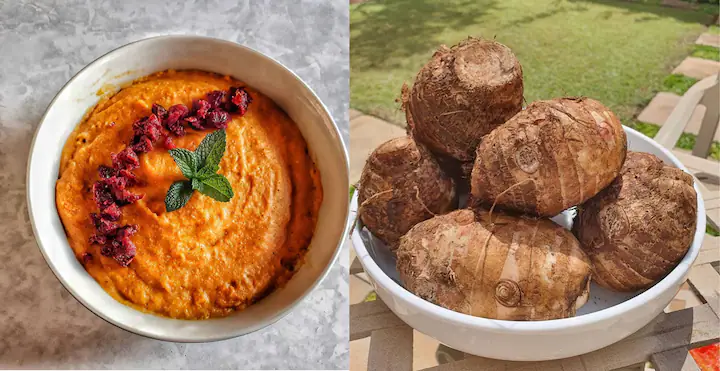
Food is central to Zulu life, with many traditional dishes focusing on vegetables, grains, and starches. Pap, a porridge made from maize, is a staple in Zulu cuisine, often served alongside vegetables like pumpkin and potatoes. Oxen are only slaughtered on special occasions, such as weddings or coming-of-age ceremonies.
One unique culinary practice is the preparation of Amazi, fermented milk, which is considered a delicacy and shared only among family members. This creamy, tangy beverage is believed to strengthen men and is central to Zulu traditions. Zulu women also brew traditional maize and sorghum beer, which takes three days and culminates in communal feasting and celebration.
Religion and Beliefs: The Spiritual World of the Zulu
The Zulu people are deeply rooted in ancestor worship. Ancestors (amadlozi or abaphansi) are believed to act as intermediaries between the living and the spirit world. They invoke these ancestral spirits during important life events such as birth, marriage, and death, often through offerings and sacrifices.
For instance, a Zulu funeral is an elaborate ceremony where the deceased’s personal belongings are buried with them to assist in their journey to the afterlife. An animal is often slaughtered as part of the ritual, symbolizing a connection with the ancestors and ensuring that the deceased does not become a wandering spirit.
Traditional Zulu healers, or sangomas, are crucial in spiritual and physical healing. They communicate with their ancestors through prayer, divination, and herbal medicines. These healers distinguish between white muthi (healing herbs) and black muthi (harmful substances), reinforcing their role as protectors of the community.
Read: Exploring Colonial History: Tours and Sites in Africa
Zulu Warriors: Stick Fighting and the Art of Combat
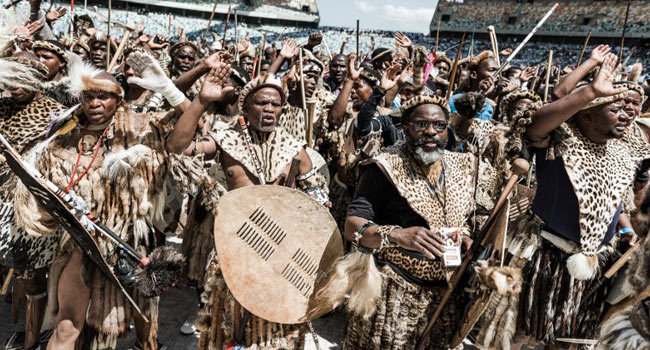
The Zulu have a long tradition of combat, and one of their most famous practices is stick fighting. This duel between men, often over disputes, is a public affair where participants engage in combat until blood flows. Interestingly, once the duel is over, the victor tends to the wounds of the loser, emphasizing honor and respect in battle.
This tradition speaks to the Zulu’s warrior culture, which continues to influence their society today. The Zulu have a proud history of bravery and resilience, exemplified in their past military campaigns and cultural practices.
Celebrations and Dance: The Rhythm of Zulu Life
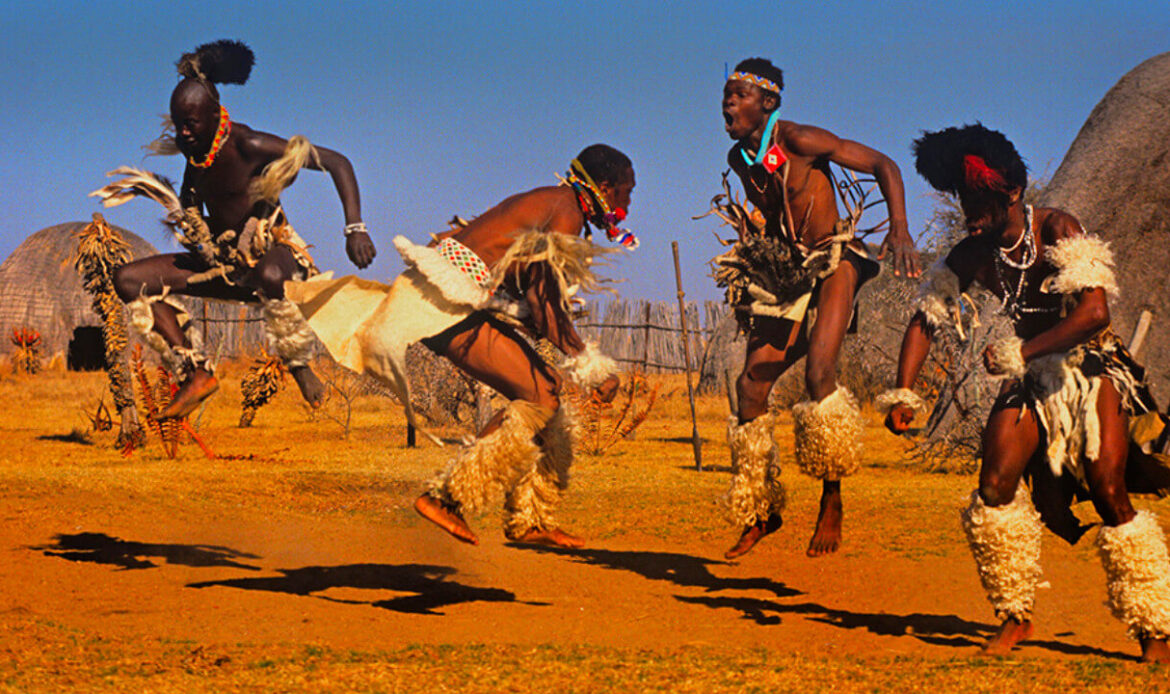
Music and dance are essential components of Zulu culture, used to celebrate life’s milestones and express the people’s communal spirit. The ingungu drum, made from goatskin and a black clay pot, is central to many Zulu festivities. It is played during important ceremonies, including celebrating a young woman’s first menstruation, marking her transition into womanhood.
There are several distinct Zulu dances, each with its purpose. The hunting dance mimics the movements of hunters and is performed before warriors go on hunts, symbolizing the bravery required to face the wild. The small shield dance, performed with rhythmic precision, encourages military unity and is often seen during royal celebrations.
The Enduring Legacy of the Zulu
The Zulu people are more than just South Africa’s largest ethnic group—they are a cultural force that has shaped the nation’s history and continues to influence its present. From their warrior traditions to their vibrant ceremonies, from the leadership of Shaka Zulu to their unique spiritual practices, the Zulu embody a rich and complex cultural heritage.
Today, the Zulu people stand as a proud testament to their ancestors, preserving their traditions while adapting to the modern world. Their history, culture, and values continue to inspire the Zulu nation and the broader South African landscape. The Zulu are, indeed, the “people of the heavens,” rooted in their past but forever looking forward to the future.
